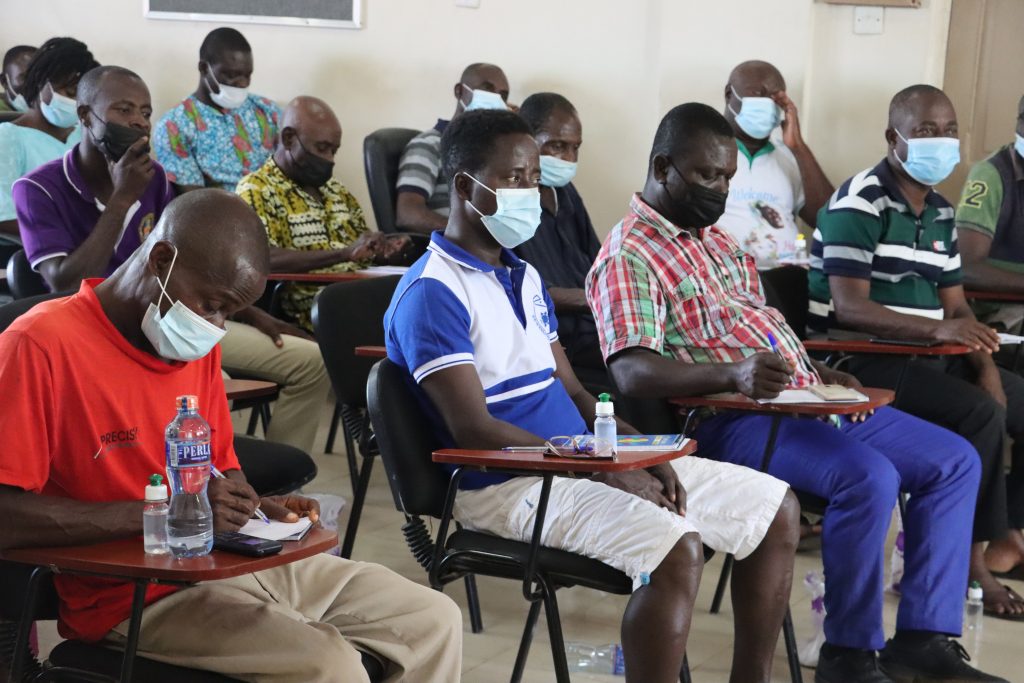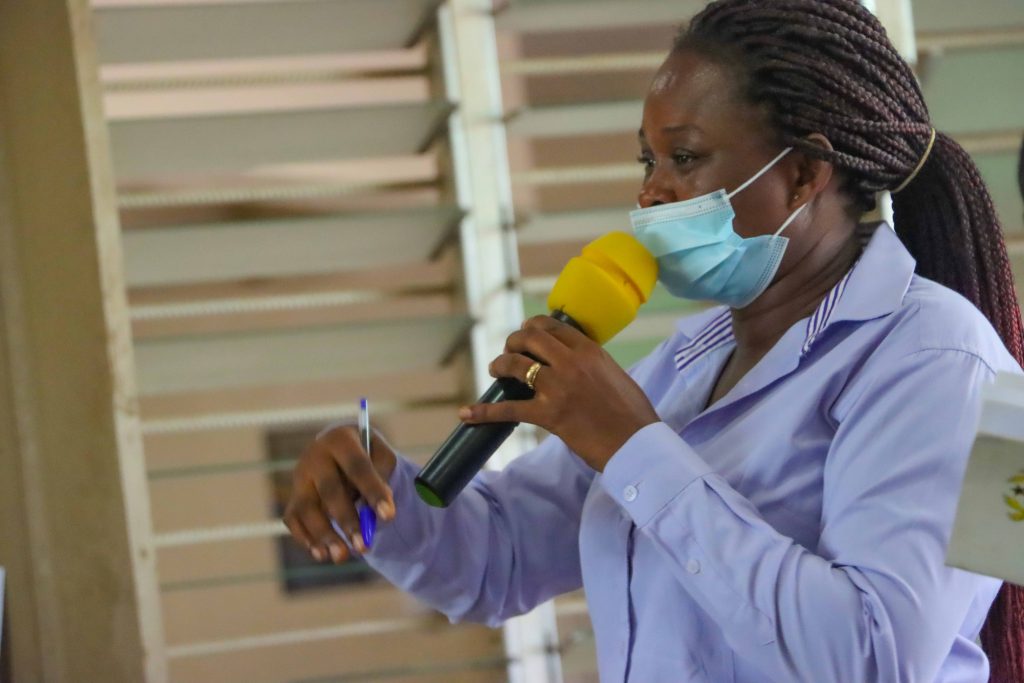Friends of the Nation in partnership with OXFAM in Ghana has organized a day’s workshop for local information centers in the Shama district. The aim is identify ways the operators could assist the assembly to educate citizens on their tax obligations.
This is part of FoN and Oxfam’s Tax Dialogue Series geared towards enhancing revenue mobilization at the local level for investment in pro-poor areas in education, health, women’s economic development and agriculture in the District. It is part of activities under the project: Promoting Progressive Property Taxation and Tax Compliance in Ghana.

Members of the Community Information Centers during the training
“We have already partnered with the assembly in mapping out properties in the district to enhance revenue mobilization. We are also working with them to train revenue collectors on how to enhance their work. But the success of our interventions also depend on how tax payers and property owners understand how their taxes are been used. This is why we think the people better positioned to disseminate information to tax payers at the community level need to be engaged”. Programs Coordinator of Friends of the Nation Mr. Solomon Kusi Ampofo stated.
The Head of the District Information Service Department Madam Eunice Owusu took the operators numbering 30 through the ethics of their work and how they could streamline their operations to support revenue mobilization. She said the success of the assembly’s programs and activities depend largely on how much the assembly can make from taxes to provide services that seeks to improve the lives of people, particularly women and children and the poor in society. But often, the monies realized from the rates and fees are unable to support the assembly’s initiatives.

Eunice Owusu-Head-Shama Information Service Dept.
This is because “the general perception out there is that people do not see the use of the taxes they pay to the assembly, so they are unable to come to terms with why they must continue paying. In most times, it is lack of information, or education on how and where the monies they pay goes or are used for. This is where you come in as Community Information Center Operators. We believe you are better positioned to provide credible education on the relevance of paying taxes, how the taxes paid are used, how every member of the society gets to benefit from it, and the need to continue honoring our tax obligations”. She explained.
The operators also had the opportunity to seek clarity on issues of taxation in the district. After the training some of the operators committed to use their medium to support this initiative to boost domestic revenues.

